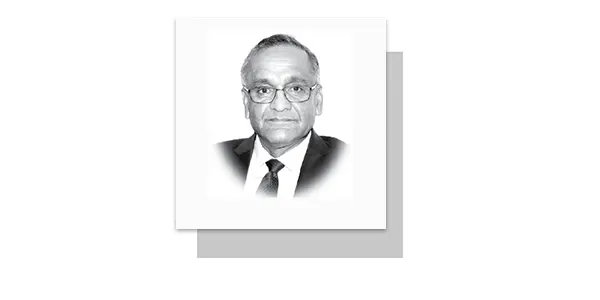TILL a few years ago, World Trade Organization – abbreviated as WTO – often used to make headlines; now it seldom does. Instead now what makes headlines is the China-US trade war: news of increasing tariffs, counter tariffs and talk increasing protectionism. Recent wave of protectionism first came to the fore during Trump’s election campaign in 2016.Trump had been a strong and vocal supporter of trade barriers since 1980s. Back then, his voice was at variance with the US national policy that propelled free trade and argued against trade barriers. True to his word, once in office, Trump imposed tariffs on solar panels, aluminium and steel, mainly imported from China.
With their vastly divergent views on a billion issues, both Biden and Trump converge on one thing, and that is imposing tariffs on imports from China to reduce the US trade deficit with that country. Both during the Trump and Biden Presidencies, US imposed tariffs on imports from China in successive rounds that escalated the trade war. Now, in their election campaigns, both are showing appetite for imposing more tariffs. Since the end of Second World War, US had been the most enthusiastic advocate of free trade and of lowering trade barriers. Now its enthusiasm is on a retreat.
History always has interesting stuff in its fold. Back in late eighteenth century, it was the Scottish Economist Adam Smith, who first dared to dissent from the centuries old popular wisdom of protectionism–a practice of imposing tariffs and quotas used by the then empires. That was the time when Great Britain had started to lead the industrial revolution and was looking for overseas markets for its exports. Free trade suited its interests. The first and famous reservation on Smith’s Theory in support of Free Trade was advanced by the US Secretary of State for Treasury Alexander Hamilton. Hamilton argued in favour of tariffs and quotas for new fledgling industries – the well known Infant Industry argument. US had then just gained independence and was struggling to establish its industry which could not compete with foreign (mainly British) Industry.
Ironically, Hamilton’s Infant Industry argument turned out to be an oft repeated argument advanced by the poorer countries during the long decades when US propelled free trade to expand its own overseas markets. Recall that much of the blame for the Great Depression of 1930s – that devastated US and most other countries – was placed on the tariffs imposed by the US. Today’s WTO is a continuation of General Agreement on Tariffs and Trade (GATT) of 1948.GATTof 1948 was a product of the times when World War had just ended and Cold War was settling in. Main negotiators of GATT were [just] two countries; US and the UK. Most of today’s major players were not, at least significant voices in these negotiations. These prominently included Peoples Republic of China, Russia, Japan and most of the present day EU.
Multilateral systems usually get marginalized when conflicts occur between the powerful. Dispute Settlement Mechanism of WTO is a case in point. This Mechanism, no doubt a massively flawed one, was once called the ‘jewel in the crown’ of WTO. It comprised a Dispute Settlement Body and an Appellate Body consisting of seven judges. Simultaneous with its trade war with China US, under Trump Presidency started to block the appointment of new judges to this Appellate Body.
Consequently, WTO Dispute Settlement Mechanism is in crisis for the last five years. At the latest WTO Ministerial Conference, earlier this year the Organization “renewed its commitment” to have a fully functional Dispute Settlement Mechanism by 2024. This ‘renewal of commitment’, translated into simple language means, “don’t expect an early solution”. History tells us that countries support free trade only when it suits them; and it suits them after their industry has become strong enough to capture foreign markets. As long as their competitors are stronger than they are, they seek protectionism.
US President in 1870s, Ulyss S Grant said that England had developed its industry behind the walls of protection for centuries, and once its industry had developed, it adopted free trade policies. Ulyss predicted that “within two hundred years, when America has gotten out of protection all that it can offer, it too will adopt free trade”. History proved him right.
Echoing the Ulyss Grant’s thoughts, in 2002 a South Korean economist, Ha-Joon Chang wrote a book, on historical perspective of different countries’ development strategies. He named it “Kicking Away the Ladder”, to denote that in their advocacy of free trade, industrialized countries tried to ‘kick away the ladder’ [of protectionism] that had brought them to the top. This prevented the Developing Countries from using the policies [i.e. protectionist] followed by them.
Now there is talk of reform of the WTO, especially its Dispute Settlement Mechanism. The issue has been under discussion at its the Ministerial Conferences. That the functioning of WTO will be reviewed is not a matter of if, but when. For sure it will be. In 1948, when trade rules were formed under GATT, the US and the UK were the only decisive voices. This time when WTO reform takes place, there will be one big change; China will find a seat on the negotiation table of those who matter. And that is a real change.
—The writer is former Special Secretary, Pakistan Foreign Ministry and former Ambassador to Nepal and South Africa.










